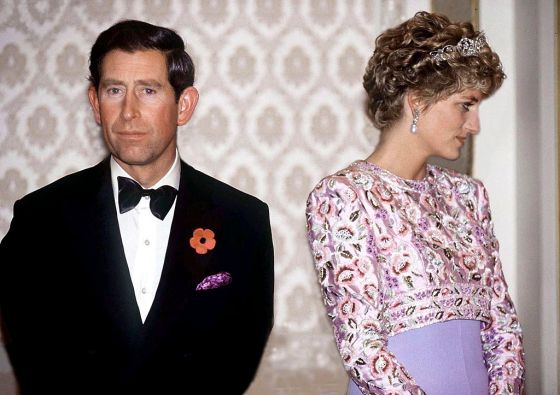King Charles III has succeeded Queen Elizabeth II on the throne following a lifetime of scrutiny as Britain’s longest serving heir-apparent.
While the national mourning period for his mother and his coronation in the coming months will help him to define his image as king, examining his decades of controversy could offer some clues to how he might behave as sovereign.
The revelations of infidelity in his marriage to Princess Diana left him, and now-Queen consort, deeply unpopular. While he has managed to regain some positive sentiment in the British public, he remains less esteemed than many other members of the Royal family.
[time-brightcove not-tgx=”true”]
Indeed, one Ipsos poll showed in April 2022 that nearly half of Britons think Charles should let his son Prince William be the next king. And YouGov polling ranks him as the seventh most popular royal—behind his mother, daughter-in-law Kate, son William, father Prince Philip, sister Princess Anne, and niece Zara Tindall. Among Millennial-age Britons, he ranks 12th.
Read more: Mourners pay tribute to Queen Elizabeth II
Most recently, he has been embroiled in controversy over donations to his charities. In July, the Sunday Times of London reported that the half brothers of September 11th terrorist Osama bin Laden made a $1.2 million donation to the Prince of Wales’ Charitable Fund back in 2013. Charles’ official office Clarence House said the royal did not personally solicit the donation.
However, the first major brush with disapproving public opinion came amid his marriage to Princess Diana—the 25th anniversary of whose death the world recently marked. A new HBO documentary The Princess shows archival footage of the duo touring Australia that suggests he was jealous at how much more popular she was.

The dam broke when she called him out for having an affair with Camilla Parker Bowles, Charles’ now-wife whom he met in the early 1970s. “There were three of us in this marriage, so it was a bit crowded,” Diana said in her famous 1995 BBC interview.
Even his well-known stewardship of charity causes has not gone un-criticized. While he has been lauded for his efforts to protect the environment and speak out about climate change, scientists have also raised concerns about other issues Charles has championed. For example, in 2019, after becoming a patron of a group focused on homeopathic medicine, the Good Thinking Society, which promotes evidence-based science, called him “anti-science.”
Read more: Queen Elizabeth II’s Death at Balmoral Has Major Implications for Scotland
But Robert Lacey, a biographer who was a historical consultant to the Netflix show The Crown, argues that the royal was careful about the causes he got involved with, as he had the challenge of waiting in the wings for seven decades and making a career for himself in the meantime. Lacey, who spoke to TIME prior to Queen Elizabeth II’s death, believes Charles steered clear of “politically contentious areas” by concentrating on issues that have to do with the countryside, ecology, and British heritage.
Perhaps most relevant now that he is king, Charles was also accused of attempting to influence the British government. In 2015, it was revealed that Charles received confidential papers on the inner workings of the British government that even elected ministers had not seen, prompting a senior Member of Parliament to call him Britain’s “best informed lobbyist.” The Guardian received 27 memos—dubbed the ’black spider memos’ because of Charles’ scrawl—that showed the royal engaged in personal lobbying efforts to senior politicians about a range of issues from orders of military helicopters during the Iraq War to “illegal fishing of the Patagonian toothfish.” At the time, Clarence House said it’s typical for heirs to the throne to be briefed on political topics, but critics argued that members of the royal family should stay out of politics.
Given his activism on political issues, it remains to be seen whether King Charles III will be a politically outspoken monarch. As James Vaughn, an expert on British history at the University of Chicago, told Politico, “The question mark would be: Would he try and use his role in the unwritten constitution to have more influence over policies and thinking of [the British government] than probably his mother was ever willing to try to do?”
Now as king, scrutiny of Charles will only heighten. But a comment he made to TIME in a 2013 profile of the royal could be directed toward anyone who questions whether he deserves his reign and is up to the job: “If you chuck away too many things,” he told the magazine, “you end up discovering there was value in them.”
Leave a comment








